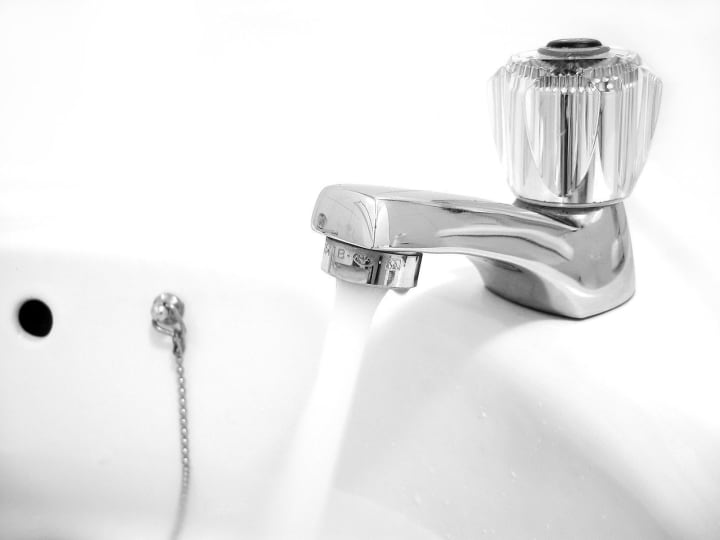Follow up test results provided on August 9, 2019 have shown that a small sample of water filters (2 of 3) provided to the City of Newark may not be removing lead to the low levels expected by city, state and federal officials. At this time, the City is aware of only two residences where water filters are not working as expected. Out of an abundance of caution, the City is notifying residents that some filters may not be working as expected. The City will continue to test filters and filtered water to assess why the water filters in those two homes were not working as expected.
Until this additional testing is completed, residents in the Pequannock service area who have lead services lines are advised to use bottled water for drinking, cooking and preparing baby formula. Bottled water will be provided by the City and State. Families in the Pequannock service area with lead services lines who have received filters can pick up water after 3:00pm today at the following locations:
· The City of Newark Department of Health and Wellness, 110 William Street
· Bo Porter Sports Complex, 378 Lyons Avenue
· Boylan Street Recreation Center, 916 South Orange Avenue
· Vince Lombardi Center, 201 Bloomfield Ave
In addition, the City strongly encourages residents to run their water – which includes showering, flushing toilets and washing dishes – in order to help coat the pipes and allow the new corrosion control treatment to continue optimizing.
Further decisions will be made about the best course of action as soon as the City receives additional testing results back. The City is working closely with the Governor’s office, the U.S. Environmental Protection Agency, the New Jersey Department of Environmental Protection and the water filter manufacturer.
As has been previously reported, water testing in Newark indicated elevated levels of lead in single and multi-family homes with decades-old lead service lines or plumbing containing lead. Elevated levels are due to the releasing of lead from plumbing and lead service lines on private property between the street and approximately 15,000 homes.
Since October 2018, the City of Newark has taken steps to immediately address elevated levels of lead in the water, including the following:
1. Distributed over 38,000 lead-safe water filters and cartridges to impacted residents free-of-charge through distribution centers located throughout the city and door-to-door canvassing. Distribution efforts continue throughout the City;
2. Offered and continuing to offer free water testing to impacted residents;
3. Offered and continuing to offer free blood testing to children under the age of 6;
4. Developed and rolled out a groundbreaking program to replace residential lead service lines with State of New Jersey’s support, replacing over 700 lead service lines since March; and
5. As of May 7, 2019, installed and began operating a new temporary corrosion control treatment system to replace the one that is no longer effective. Experts expect to see a reduction in lead levels by the end of the year
There are additional steps residents can take to reduce the risks of lead in water:
· Use bottled water for drinking, cooking and preparing baby formula until further testing confirms the reliability of the filters. The New Jersey Department of Health supports the activities of Newark related to the use of bottled water, especially for formula-fed infants, children under 6 and pregnant women, until more information is available.
· Do not boil water to remove lead. Boiling water will not reduce lead.
· Test your water for lead at no cost. Call the Department of Water and Sewer Utilities at (973) 733-6303 to find out how to get your water tested for lead.
· Get your child’s blood tested. Contact the Department of Health and Community Wellness at (973) 733-5323 or your healthcare provider to find out how you can get your child tested for lead if you are concerned about lead exposure.
· Identify and replace plumbing fixtures and lead services lines containing lead. Register online to replace your residential lead service lines at https://www.NewarkLeadServiceLine.com/Register. Replacement costs will not exceed $1,000, pending available funding.
Call the Department of Water and Sewer Utilities at 973-733-6303 or visit www.NewarkLeadServiceLine.com to find out how to get your water tested for lead at no cost, get your child’s blood tested free-of-charge, register for Lead Service Line Replacement, or for more information on steps the Department of Water and Sewer is taking to address the lead action level exceedance. For more information on reducing lead exposure around your home/building and the health effects of lead, visit the EPA’s website at www.epa.gov/lead or contact your health care provider. Residents may also contact the Department of Health and Community Wellness at (973) 733-5323 about free blood testing for children under 6.
**********************************************************************
Original story:
The city of Newark has been urged to distribute bottled water to residents after testing at two homes showed water filters had failed to bring lead levels down to safe concentrations, the U.S. Environmental Protection Agency said.
Testing last week showed lead levels in tap water in excess of what has been deemed a safe level of 15 parts per billion. The agency recommends using bottled water for drinking and cooking for the time being.
Lead exposure can cause a variety of health problems, especially in children and infants.
The affected homes are served by the Pequannock water treatment plant, which handles the supply for most of the city except the East Ward, NJ.com reported. Elevated lead levels were first reported in 2017, when lead from corroded pipes at the Pequannock plant leached into the water supply.
The city had distributed thousands of water filters in response.
The EPA has asked the city to respond by the end of the day Monday. The EPA and the state Department of Environmental Protection had previously offered to assist the city in distributing bottled water and to devise a permanent solution to the crisis.
Click here to follow Daily Voice Rutherford and receive free news updates.


